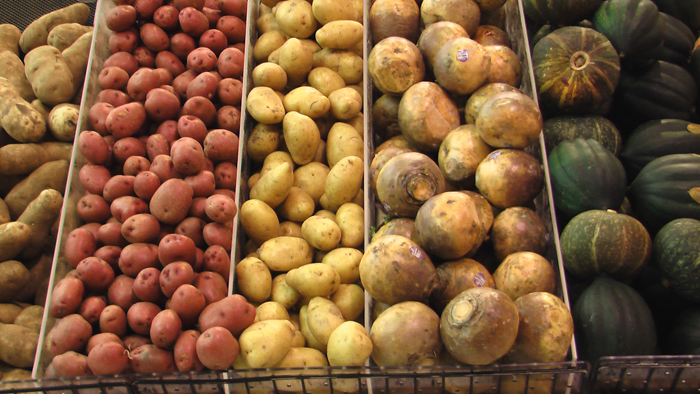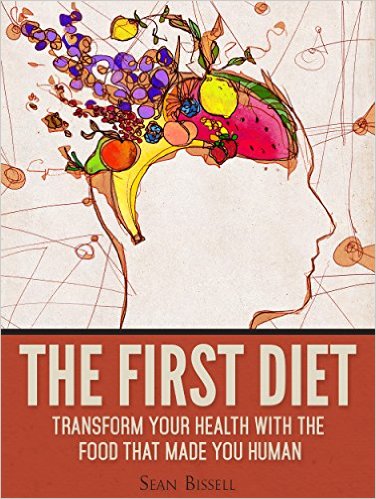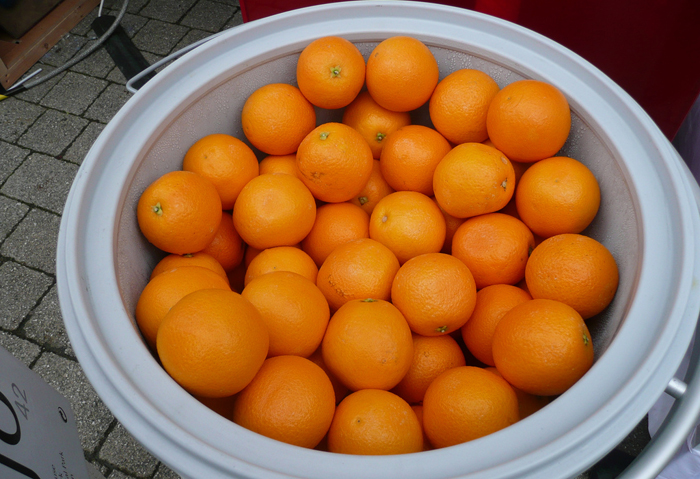If you knew the most advanced nutrition secrets, what would you do with them? How would your life change? Would you be able to feel good, sleep well, train better and live longer?
I can’t answer those questions for you, but I want you to think about how you’d live differently if you knew you were giving yourself the best food at every opportunity, instead of succumbing to the ease of fast food, eating out, or throwing a boxed meal into the microwave.
Or what if you didn’t have to worry about whether or not a food was good or bad for you? How much would that free up your food worries?
A friend of mine sent me a message last year (2015) and said he was working on a book called The First Diet. While I don’t know this guy outside of the internet and lots of instant messaging, I consider him a friend. He’s very intelligent and one of the most critical of thinkers I’ve ever met.
Sean leads a nutrition group on Facebook (The Middle Path Health Alliance) and it’s one of the only groups I actively participate in outside of a few others and my HOTBOD group. Not only is it a gem for great information, most everyone in there is pragmatic in their search for nutritional truth.
And most importantly — no one claims to have all the answers. We’re all continually looking at research, questioning the so-called Truth and trying to make sense of it all. And believe me… sometimes nutrition can get real confusing.
If you can’t understand a study, there’s likely someone in there who’s already read it and can explain it. If you’re having a certain issue with food or a health problem, there’s probably someone in there who can lead you to a resource that will help you.

Anyway — I open this article up with all that to say this. Sean Bissell is a smart guy, and he just released one of the only layman’s nutritional books I’ve ever felt good on telling the world about.
Sean has no special supplements to sell, or advanced diet strategies to follow. No super strict meal timing, or pseudo-scientific reasoning for carbs being good or bad. He does a great job at looking at nutrition and health from an evolutionary standpoint instead of what’s popular in the latest health and fitness fad diets.
Disclosure: I read the book way before it was released. Months even, and gave Sean my feedback on what I liked, what I thought needed some polish, and my overall thoughts on the subject. While I am partial to his views because they resonate with me and my understanding of nutrition and health, I am in no way affiliated with this book other than recommending it here because it’s awesome.
But this wasn’t my first time reading about nutrition from this angle (more on this later). I’d been reading so-called alternative ideas from the likes of Ray Peat, Chris Masterjohn and others for the last 3+ years.
The way Sean has laid everything out is so simple for the average person to understand. But even if you consider yourself an advanced student of nutrition, I think you’ll be able to glean something from his work, and all the references he provides for your own review in the footnotes.
In part 1, we’ll to cover the following:
- Why some nutritional ideas are misunderstood.
- Why some oils can be deteriorating to good health.
- Why the Paleo Diet could’ve made our brains smaller.
In part 2, we’ll cover these ideas:
- Why sugar is good for you (and necessary for optimal health).
- The oft-neglected amino acids (protein you’re probably missing out on).
- Why nutrition isn’t everything.
- Dietary limitations (gasp).
The First Diet: Transform Your Health With The Food That Made You Human

The book addresses the central problem of our food, particularly in the West and most industrialized societies from a standpoint of good health and eating according to our physiology, as opposed to what is merely edible.
From the intro on Amazon:
The First Diet is focused on showing you the foods that are compatible with our warm-blooded, 98.6 degree bodies. The foods that create more energy, and help increase your metabolism and health. This is the same type of energy that helped us evolve into the big-brained humans we are today. And the very energy we need to restore our health.
To do this review justice, I’m going to give you the big takeaways and highlight my favorite parts.
Some of what’s in the book I’ve known for a while, but many ideas blew me away. This book really made me think more about the diet of our ancestors than ever before (the Paleo Diet never convinced me) and how it was probably one of the main factors in our evolution.
Many Nutritional Ideas Are Wrong Or Misunderstood
Everything seems to go in cycles. One week you read sugar is as addicting as cocaine (hint: it’s not). And the next week you read that while you should avoid fructose at all costs, eating fruit is fine.
And then we found out — after all this time (50+ years) of believing eating animal fat (saturated sources) caused ill health and heart disease — that it just wasn’t supported by science[1].
What type of diet should you follow? Are the low-carbers right? Are the vegans right? What about the Paleo Diet?
It can become real confusing real fast.
And I think the reason for that is twofold. The field of nutrition is difficult to understand because of so many variables, but it’s also used to manipulate people into thinking a certain way about certain foods.

As far as the confusion goes, when we think about nutrition for humans, we have to also take into account that individual’s physiology, environment, what they ate during adolescence, their individual tolerance to various food items, allergies and a whole host of other variables.
This is why we can’t simply claim “saturated fat causes heart disease” because there are many others who eat saturated fat (and have their entire lives) without any sign of heart issues.
We also know that smoking cigarettes and drinking alcohol is bad for us, but there are some outliers who live beyond 100 years of age who drink and smoke daily. Correlation doesn’t equal causation.
And to prove that industries and corporations aim to manipulate us when it comes to what we eat, just take a stroll down the snack aisle and you’ll see billions of dollars spent on marketing campaigns, packaging, and the carefully engineered ‘Frankenfoods’ designed to make you eat more and more, despite the food containing tons of calories and very little nutrition.
When I was staying in Chiang Mai, Thailand, we got many of our groceries from outdoor markets, and there were no fancy advertising or frankenfood to be found.

Foods Derived From Vegetables Must Be Healthy Because ‘Vegetables’
We know vegetables are good for us. For as long as I can remember, it was “you better eat your broccoli, or you get no dessert.”
Growing up, I hated most vegetables due to their lack of taste and horrible texture. But there’s a reason our parents forced us to eat them — they’re known to have vitamins and minerals that other foods don’t — specifically junk foods we like to eat as kids.
One popular food item is vegetable oil. Back when the government claimed that saturated fat was evil that and we shouldn’t be cooking with it (lard, animal fat trimmings, coconut oil, butter), the alternative was healthy vegetable oil.
With vegetable oil came a ton more seed oils and other highly unsaturated sources. Now we also have canola, soybean, and peanut oils.
Sean gets way more into this in the book, but I’ll leave you with something very interesting from The First Diet.
When we evolved near the equator in Ethiopia, the only available fats were of the tropical variety – those found in the coconuts, plants and animals we consumed. The closer to the equator, the more saturated sources of fat are found, both in the plants and animals.
Why? Because the animals ate the plants, as well as other animals, and the fat they eat is what’s stored on their bodies. Saturated fats are more stable in this hot environment than unsaturated (particularly polyunsaturated) fat sources due to rates of oxidation.
You’ve probably heard of the term ‘antioxidant’ — which basically means inhibiting oxidation, or the breakdown of the substance (in this case, fat). Well, the opposite of antioxidant is pro-oxidant, meaning the chemical/substance induces oxidation, thus increasing oxidative stress.
What is Oxidative Stress?
It’s the imbalance between the production of free radicals in the body and its ability to detoxify the harmful effects through neutralization by antioxidants.
In other words, consuming too much polyunsaturated fat without balancing them with saturated sources can cause stress on the body through the process of oxidation.
When we consume excessive amounts of polyunsaturated fats (lots of vegetable, seed, and nut oils), they can be damaging to health due to their tendency to oxidize much easier than saturated sources. The Fat Chapter is an incredible resource for understanding how dietary fat affects us.
Why The Paleo Diet May Have Made Our Brains Smaller
When people hear the phrase ‘eating like our ancestors ate,’ most think of the Paleo Diet. If you’re not familiar with the Paleo Diet, you can Google all you want, but here are the basics:
What The Paleo Diet Says To Eat:
- Grass-produced meats
- Fish/seafood
- Fresh fruits and veggies
- Eggs
- Nuts and seeds
- Healthful oils (Olive, walnut, flaxseed, macadamia, avocado, coconut)
What The Paleo Diet Says To Avoid:
- Cereal grains
- Legumes (including peanuts)
- Dairy
- Refined sugar
- Potatoes
- Processed foods
- Salt
- Refined vegetable oils
Above list from The Paleo Diet site[2].
As you’ll notice, there’s an emphasis on animal products, healthy fats/nuts, and some fruits and veggies.
In theory, The Paleo Diet ain’t that bad when broken down into what it really is: whole foods over junk food.
But people go crazy with it — oftentimes eliminating fruit altogether due to a fear of fructose, going ketogenic by only eating meat, fat and leafy greens, or just lowering carbs more than necessary.
Some even go as far as aiming to eliminate all simple sugars (which can get real confusing).
This becomes problematic in some of the Crossfit cults where they preach a low to no carb diet coupled with high intensity exercise.
I digress. Here’s why The First Diet is probably better than the Paleo Diet*.
I cannot go over everything in this section because there’s a ton of information in this chapter. It’s also my favorite chapter because of how in depth it goes about the diet responsible for our brain size from an evolutionary standpoint.
But here’s what you need to know.
The Paleo Diet is based on the hunter-gatherers who left the plains of Africa when the drought occurred, killing of many of the animals, and drying up the land which produced the tubers, leafy greens and fruit we were so used to eating.
When humans left, many migrated to colder regions where they had to build fires to keep warm, hunt their food, and gather as much as they could. In these areas, especially the colder regions, fruit and sugar are scarce. Only the foods that evolved to withstand the temperatures such as nuts and seeds could be gathered.
So our diets went from being predominantly abundant and sugar-based to scarce and mostly meat and fat-based. In the process, our brains became smaller over a very long period of time (the last 200,000 years).
In that link above, there are a few really good ideas as to why this happened.
Some think we’re becoming more efficient and our brains don’t need as much space as before. Others think that since we’re no longer as aggressive as we were 200,000 years ago, those parts of our brain (responsible for aggressiveness) are shrinking. Some even suggest that we’re becoming dumber — to the point of losing parts of our brain we’re not using.
Here’s where The First Diet gets interesting… Sean has written his ideas based on our physiology, rather than what it takes to survive.
I cannot do the explanation justice, so I’m going to quote directly from the book, the theory of why our brains have shrunk.
Since we left Africa, our brains have been slowly shrinking. We have lost a chunk of brain mass the size of a tennis ball, from the time we were born as humans in Africa to our present day.
There is a great deal of speculation as to why that happened. Some think our brains are becoming more efficient and don’t need the extra space, while some think we are losing the parts of our brains that make us aggressive. Others believe we are becoming dumber, as living in cities is easier and we don’t need as much brain power to operate in them. I think there’s another angle that hasn’t been explored, and is somewhat controversial.
When we were forced to leave Africa, we also left our abundant sugar sources. We abandoned our fruit and palm trees. We ended up finding enough calories through other sources, but it was not ideal. Our brains are 2% of our body weight, and take up 20% of our energy[3].
Human brains may have even taken up more energy 200,000 years ago. Having a large brain is not exactly energy efficient. Our brains need carbohydrates to function, and carbohydrates promote a higher energy metabolism.
But if you are starving, having a large brain that takes up 20+% of your energy is not a great idea. In the situation of a chronic energy shortage, evolution would try to bring our brain size down in order to compensate, and it seems to have done that.
Brains all over the world have shrunken, and the smallest reported human brains now belong to the Bushmen in Africa, and the Aboriginal people in Australia. This does not include pygmy people in Africa, as their brains are the smallest, but so are their bodies, so we’ll discuss them later.
What would cause the Bushmen and Aboriginal people to have the smallest brain sizes? If you look at their diet, there are clues. Bushmen have a high-fat low-carbohydrate diet, and sometimes a very low-carbohydrate diet. Their staple food is the mongongo nut, which is mostly fat.
As for their animal sources, they hunt by running their prey into exhaustion, known as persistence hunting. Hunters can run after their prey for days with little food to eat, until their prey falls down from exhaustion and the hunter can kill it and bring it home. Because of the highly energy-intensive hunting, combined with the low carbohydrate diet, it is likely that the Bushmen have down-regulated their brain size to take up less energy and to better survive.
The Aboriginal people in Australia have a low calorie, high nutrient dense diet. The calories they get are in a form of feast and famine. There are many periods of famine and short burst of feasting. They get little sugar, but when they come across honey or other sources, they devour it as a delicacy.
On average, though, the Aboriginal people rely on small amounts of calories, and therefore evolution has likely down-regulated their brain size to take up less energy.
And what about the smallest brains and bodies of al human populations anywhere on Earth? Those belong to the pygmy tribes. Historically, pygmy people have had a difficult time getting enough food on a consistent basis. The lack of consistent food combined with disease has shortened pygmy people’s life spans significantly. On average, the lifespan of a human pygmy is from 16-24 years of age. Only 30-50% of children survive to 15 years of age. And less than a third of women live to see menopause at.
It is because of this lack of nutrition, and lowered lifespan that the pygmy bodies were forced to start reproducing at younger and younger ages. And younger people have smaller bodies. But this is counterintuitive, because generally people who grow taller and larger tend to be more fertile and birth larger and more robust offspring. That’s obviously a good thing for survival, but not if the average lifespan is so low that adults may not have a chance to have children at all. In this hazardous situation, nature favors those who mature and reproduce early, at the cost of their growth.
The smallest recorded brains belong to the Bushmen, the Aboriginal people, and pygmies.
These populations get small amounts of carbohydrates, and little calories, at least compared to other more “neolithic” or “industrialized” parts of the world. Now that’s all interesting, but what pulls this all together is that recently anthropology has shown us that our brains have begun to grow once again. They stopped shrinking, and started growing right around the time of the American colonies. What does this also line up within history? The sugar trade.
That’s right, at the same time that sugar once again became a staple in the human diet, our brains stopped shrinking and started expanding again[4]. Take away sugar, and brains start to shrink; bring back sugar, and brains start to grow.
Having a big brain is a luxury in the natural world. There are plenty of organisms that do just fine and live long lives without big brains. Before we became humans, we happened to be at the right place at the right time in the tropical environment of Africa. That supplied us with energy-rich sugar sources and gave our biology signals of abundant brain energy.
Because there was an abundance of brain energy, evolution had an opportunity to let our brains grow, develop and get bigger. However, if you take away that brain energy, evolution must keep going, but it will adapt back down, and find ways to conserve— likely by shrinking our brains again.
Alright, so we know that the brain requires sugar to function optimally. So why are many people against it? There’s a lot of controversy on why sugar is bad, but it doesn’t always live up to the scrutiny (more on this in the Part 2).
To be fair, The First Diet was what we ate before Paleo — before we had to scavenge for food just to survive — when we actually thrived.
Many people make the mistake of thinking since we were able to survive on many different foods, we’re resilient to anything. However, just because we survived, doesn’t mean it was optimal.
And sure, you can survive on fat and protein alone. People have done it for centuries. But since glucose is our body’s primary fuel source, we perform and function better when we have enough sugar in our diet.
But just because your body can make ketones for fuel doesn’t mean it’s a good thing… Remember, this is about thriving, not simply trying to survive.
I’ve written about low carb diets before. For further reading, check these articles:
- If you want to lose fat and keep it off, don’t fall for the low-carb trap
- How to lose weight: The best way to lose fat and avoid fad diets
In a few days, I’ll have part 2 of this review up.
*Final note: I realize that it’s impossible to know exactly what we ate, but our physiology leaves clues of our preference of various nutrients over others. So keep in mind we can’t truly know exactly what our ancestors ate. Scientific American does a good job explaining this here.
References
[1] Siri-Tarino, Siri-Tarino W., Qi Sun, Frank B. Hu, and Ronald M. Krauss. “The American Journal of Clinical Nutrition.” Meta-analysis of Prospective Cohort Studies Evaluating the Association of Saturated Fat with Cardiovascular Disease. From the Children’s Hospital Oakland Research Institute Oakland CA (PWS-TRMK)the Departments of Nutrition (QSFBH)Epidemiology (FBH) Harvard School of Public Health Boston MA, 13 Jan. 2010. Web. 16 Feb. 2016. <http://ajcn.nutrition.org/content/early/2010/01/13/ajcn.2009.27725.abstract>.
[2, 4] http://thepaleodiet.com/what-to-eat-on-the-paleo-diet/#.VsXlq5MrJE4
[3] Raichle, Marcus E., and Debra A. Gusnard. “Appraising the Brain’s Energy Budget.” Pubmed, Bro. N.p., n.d. Web. <http://www.ncbi.nlm.nih.gov/pmc/articles/PMC124895/>.
[5] http://raypeat.com/articles/articles/unsaturated-oils.shtml

Love reading your articles but this one totally blew my mind. Felt like you were Mulder from X-Files tv show exposing a conspiracy theory. I’m intrigued now for part two and to read the First diet book….
the next one is about to be ready.